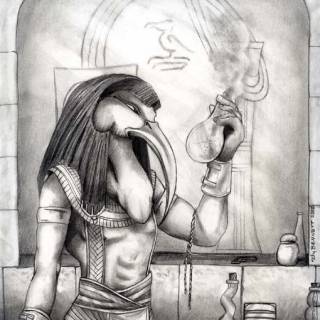 Magical Research
Magical Research
What differentiates a top world class university from a bottom class university?
Intense competition and selection operate in a top university, both for the academics and for the students, both have to work very hard and many of the students compete to stay on and become doctors and professors themselves.
On the other hand in some crummy jumped up polytechnic none of these things applies. The mediocre students just muck about, the teachers just go through the motions teaching second-hand stuff, and they usually have to cover a lot of admin duties as well.
Basically RESEARCH differentiates between a top university and a bottom one.
Prestigious institutions do the difficult research and create knowledge, and intense competition exists to either work there and to help create it, or to go there and receive it first-hand. Mediocre institutions merely recycle it. Most academics teach in institutions less prestigious than the ones they qualified in. Only outstanding research keeps you at the top.
Research can look impossibly challenging and difficult, but basically you just have to look for unanswered questions, or even more challengingly, for unasked questions.
All of the above applies to magical traditions and orders.
The magical revival which began in the 1880s came from the massive research efforts which created the Golden Dawn corpus, a great synthesis forged mainly by Macgregor Mathers, and from it flowed most of the western esoterics of the 20th century.
However, fairly soon after it ceased to research and innovate the GD disintegrated and its alumni took its ideas and applied them elsewhere to create other traditions. Wicca, Neo-Paganism, Druidry, Thelema and most of the new age ideas derive directly from it. Aleister Crowley actually added surprisingly little to the theoretical magical paradigm he learnt in the GD but he added techniques of erotognosis and chemognosis and a dash of Islamic flavour in his creation of the OTO, but with basques replacing burqas for the ladies. Of the GD alumni perhaps only Austin Spare tried something radically different. We still find his theory impenetrable and obscure, (it seems to have some relationship to Freudian ideas of the unconscious and/or unconscious mind) but his stripped down practical techniques proved a remarkable innovation.
If everyone had settled for Mathers’ great GD synthesis as the final word on Magic the subject would have become moribund and capable only of preserving itself as a minor religion that no longer attracted the influential minds that it did in its early days.
Some groups seem to have developed the idea that Magic or Chaos Magic has become a closed art, and that we know it all now, so research and the attempt to develop new teachings have become pointless.
I believe that we have barely scratched the surface of Magic and that thousands of questions remain unanswered and unasked.
I consider it the duty of anyone aspiring to the rank of Magus, to Research, to Teach, and to promote the Great Work of Magic.
Research and Teaching drive each other.
Magi and Initiates should live in terror of each other, with the Magi forced to create to attract Initiates, and the Initiates eager to catch out their Magi and to eventually surpass them.
So do you have your own top ten list of unanswered or unasked questions in Magic?